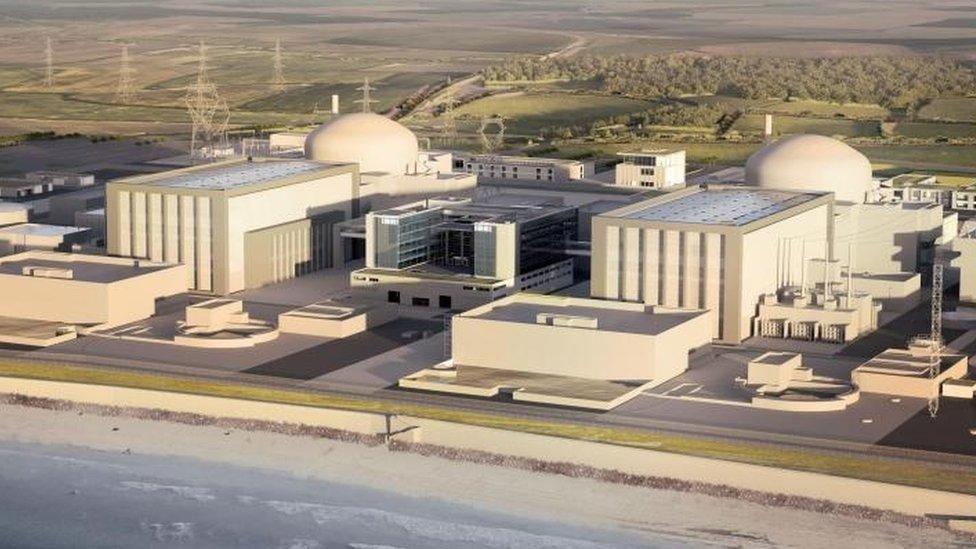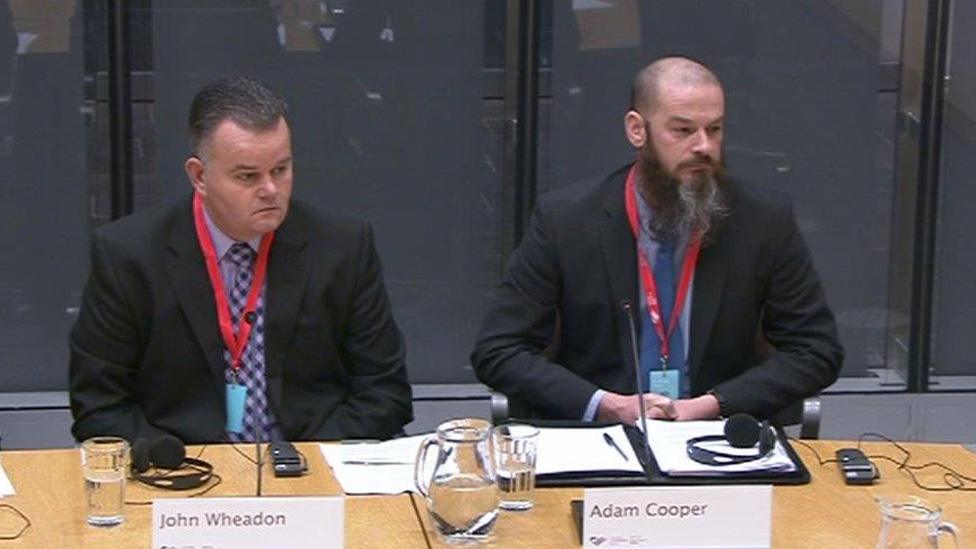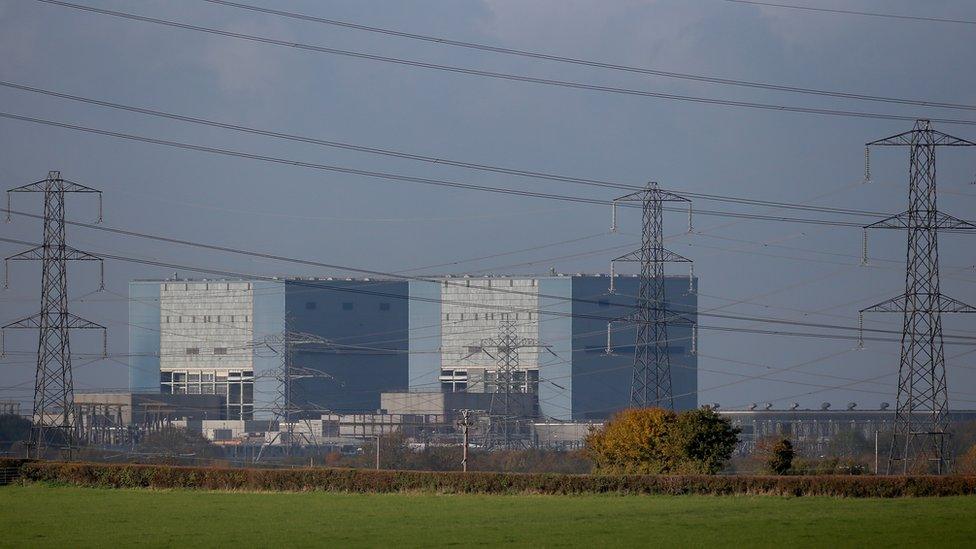Hinkley C: NRW to address Cardiff Bay mud dump concerns
- Published

Hinkley Point C's developers say claims of contamination are 'alarmist'
The approach taken to a controversial marine licence application would "probably be very different" were it received today, Natural Resources Wales (NRW) has said.
Developers are due to dump 300,000 tonnes of mud, dredged from alongside the Hinkley Point C nuclear power site in Somerset, off Cardiff Bay.
But campaigners want more tests and for the licence to be suspended.
NRW said with a similar application, it might give people extra reassurance.
Cefas, the UK Government agency which carried out the initial tests, said it was "very happy" with the advice it had provided to NRW.
Both organisations were giving evidence to an Assembly committee considering a petition of more than 7,000 signatures calling on the Welsh Government to intervene.
Campaigners fear the mud could have become contaminated by discharges from the former Hinkley Point A and B nuclear reactors.
EDF Energy, the company behind the £19.6bn Hinkley Point C, has said those claims are "wrong, alarmist and go against all internationally-accepted scientific evidence".
Sampling of the mud in 2009 and 2013 found levels of artificial radioactivity were so low it would equate to being "not radioactive" in law.
The results of the most recent testing, carried out in May 2017, have been presented to NRW and will be subject to a so-called technical consultation between experts.
But in evidence to AMs, both Cefas and NRW agreed to consider ways of addressing levels of public concern about the planned dumping.
Labour's Mike Hedges told them it "has not been a public relations success" while Plaid Cymru's Neil McEvoy said he was "gobsmacked".
Hinkley Point C
Nuclear power station, Somerset
£18bn
building cost
-
25,000 jobs
-
60 year lifespan
-
7% of UK's generation needs
-
£92 per MWh electricity price agreed with UK Government
The licence was granted during a period when responsibility for environmental regulation was being transferred from the former Environment Agency Wales to its successor body, NRW.
It means the application was initially handled by Welsh Government officials.

Natural Resources Wales experts gave evidence to the petitions committee
NRW explained that it had been subject to a public consultation with notices placed in the Western Mail newspaper.
But John Wheadon, permitting services manager for NRW told the committee he would hope "we would do something differently if that application was received today to provide that additional reassurance to communities".
"There are plenty of examples where we do have permit applications where we engage with local communities and beyond if we realise the level of public interest that is there."
The petitions committee agreed to write to NRW with further questions, and to suggest that it requests additional testing of the mud.
Once they have received a response from the regulator they will then consider whether a full Senedd debate on the issue is required.
EDF Energy hopes to start dredging in the summer of 2018 and has insisted the work poses no threat to the marine environment or human health.
Tim Deere-Jones, marine pollution consultant and prominent nuclear critic who has spearheaded the campaign against the dumping, said the committee had validated his concerns.
"It shows that they are dissatisfied by the quality and quantity of the data submitted. We applaud their decision to try and get those data gaps filled in."
- Published5 December 2017

- Published25 September 2017

- Published15 September 2016
